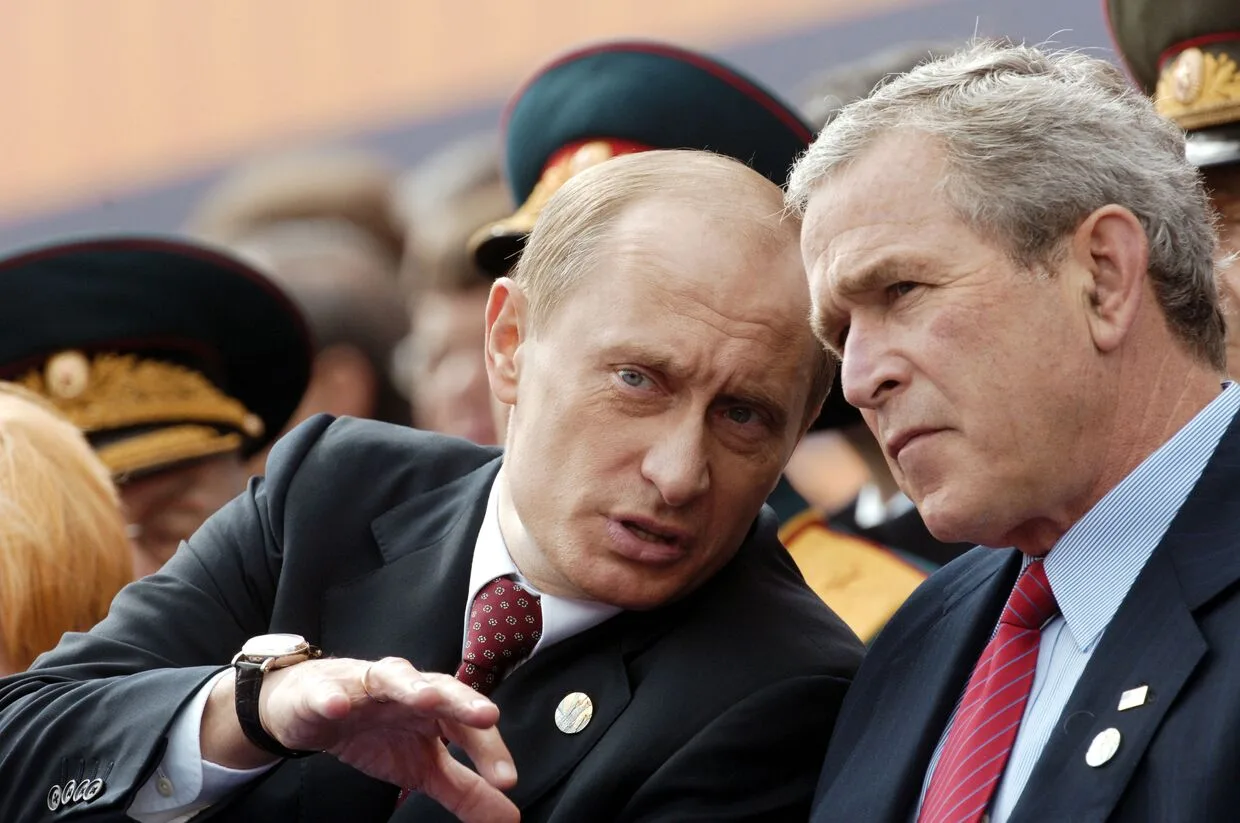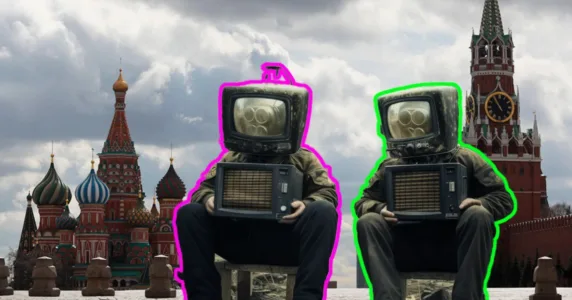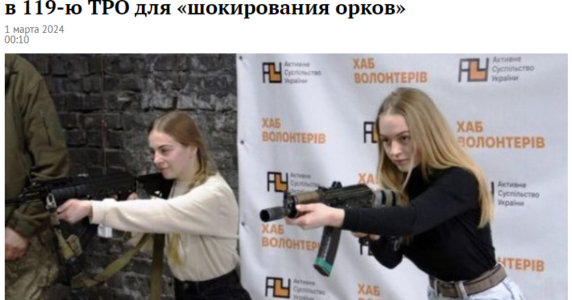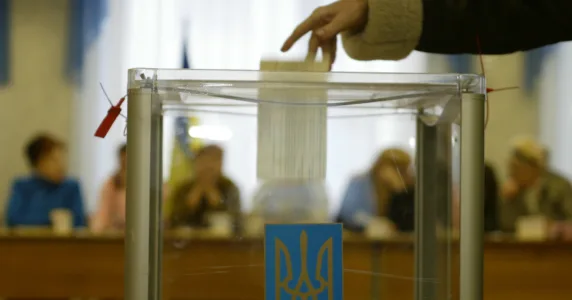Navigation and useful materials
The terrible terrorist attack in Crocus City Hall in Krasnogorsk became a real information precedent for Moscow, allowing it to revive a number of old propaganda narratives.
Accusing Ukraine
Statements about the “Ukrainian trace” in the terrorist attack are completely unfounded, but quite expected. Russian propaganda has been trying to put the stigma of terrorism on Ukraine since the very beginning of its aggression in 2014. “Terror,” allegedly unleashed by Kyiv against the “people of the Donbas,” became one of the main ideologies of ruscism, and at the same time — a formal reason to first recognize the so-called “LPR/DPR,” and later to launch a full-scale attack on Ukraine.
READ ALSO: How Russian Terrorists Accuse Ukraine of Terrorism
Moscow is persistently trying to link Ukraine with Islamic terrorism. Accusations of links with the Hizb ut-Tahrir party have become a pretext for the persecution of the indigenous people of the occupied Crimea: since 2015, there have been 17 waves of arrests of Crimean Tatars. Moscow is also cynically trying to use the repressive campaign against Crimean Tatars to discredit Ukraine in the eyes of the international community, talking about the links of Crimean “terrorists” with official Kyiv.
Russia systematically spreads fakes about “Caucasian terrorists” as part of the Armed Forces of Ukraine. For example, propaganda recently branded “terrorists” a group of Ichkerian volunteers who participated in a raid in the Belgorod and Kursk regions. Rustam Azhiev (Abdul Hakim al-Shishani), who fought with the Russians in the Caucasus, and later joined the anti-Assad forces in Syria, deserved special attention. After the terrorist attack in Crocus, the narrative got an additional boost.

The Moscow desperately needs the topic of “Ukrainian terrorism” — in Islamic or any other form — to divert the world’s attention from its crimes committed against the civilian population of Ukraine for a decade. A terrorist state that accuses its victim of terrorism is a typical pattern of the Kremlin’s cynicism.
Overtures towards the West
After the terrorist attack in Crocus, Russia had the option of resuming dialogue with the West under the pretext of a joint fight against ISIS. This fact alone destroys the Kremlin’s conspiracy about the “Ukrainian trace” because what Kyiv is really interested in is the preservation and strengthening of the international isolation of the aggressor state.
The Kremlin may be only waiting for the moment to extend “a helping hand” and thus strengthen its diplomatic positions. France has recently declared the highest degree of terrorist threat. Such measures are taken when an attack has already occurred or its prospect is considered imminent. Moscow is most likely expecting such an opportunity. Meanwhile, the Russian disinformation machine is trying hard to evoke as much empathy as possible on the part of the Western audience, portraying Russia as a “victim country.” However, the “victim of terrorism” is not distracted from its favourite pastime — missile terror against Ukrainians.
READ ALSO: Malice, Ridicule, Anti-Ukrainian Fakes: Russian Propaganda on HAMAS Attacking Israel

This is not a new trick of the Kremlin: this is precisely what Putin did after September 11, 2001, imposing himself on the United States as a “friend” in the fight against international terrorism. At that time, the Russians brutally cleansed the North Caucasus, destroying the armed resistance to the occupation as “terrorists.” Putin acted similarly during the intervention in Syria. Pursuing its own geopolitical interests, such as saving the oppressive regime of Bashar al-Assad, Moscow positioned itself as an ally in the fight against ISIS.
However, the Kremlin cannot be called a consistent opponent of jihadist terrorists. Russia supports the Taliban regime in Afghanistan and openly welcomed a HAMAS delegation after footage of the massacre at the NOVA Festival and nearby kibbutzim in Israel was published in October 2023. Not to mention the cultivation of anti-Semitism at the national level, which led to a real pogrom in Makhachkala. There is also anti-Semitism “for export” in Russia: in November 2023, a wife and a husband, illegal immigrants from Moldova, were arrested in France. By the order of the Russian special services, they painted the stars of David on buildings in the 14th arrondissement of Paris.
READ ALSO: Anti-Semitic Card of Russian Propaganda
Mobilization and internal repression
Moscow is guaranteed to use (and is already using) the terrorist attack in Crocus for domestic purposes. First of all, it is about fomenting fear of terrorist attacks, which is expected to contribute to the new consolidation of Russian society around Putin. Actually, it was the bombings of residential buildings in Moscow, Buynaksk, and Volgodonsk in September 1999 that helped Putin come to power. Indeed, the terrorist attacks of that time were not investigated, which adds credibility to the version of the involvement of Russian special services in the explosions. This version is still metaphorically called “Ryazan sugar”: the explosion of a residential building in Ryazan was prevented, the attackers were captured, but they turned out to be FSB officers. Then the Chekists called it a “training,” and the bags, instead of explosives, supposedly contained sugar.
This time, the dirty work was claimed by the Islamic State. The Kremlin will do everything to turn the tragedy in favour of the regime. In the spring, Russia plans another wave of mobilization, and it is to be expected that propaganda will resort to “anti-terrorist” measures to stimulate it.
However, the terrorist attack in the Crocus hall can help the Kremlin in other directions as well. Anti-Tajik hysteria is already unfolding in Russia. Tajikistan is the poorest country in Central Asia, whose natives are traditional labour migrants in the Russian Federation. There they have long been subjected to systemic discrimination: ethnic, economic, social. Now Moscow has a convenient opportunity to set the Russians against the “internal enemy” in the face of the defenceless Tajik community, which is a classic technique of fascist and similar regimes. By publishing shocking footage of Crocus hall suspects being tortured, propaganda has thus given the green light.


But not only migrants and Russian Muslims will feel the deterioration of their situation. After the terrorist attack in Crocus hall, Dmitry Medvedev, the “evil clown” of Putin, called for the killings of both those involved and those who were sympathetic. The ruling party United Russia promised to work on the restoration of the death penalty. Until now, the moratorium on the death penalty was perhaps the only thing that distinguished Russia from typical fascist regimes. Now there are all the conditions for this “unfortunate shortcoming” to be eliminated.

So, Moscow is guaranteed to try to make the most of the terrorist attack in Crocus hall. How successful these attempts will be, time will tell. One can be certain that Russia’s end goal is not to reduce the terrorist threat in the world, but, on the contrary, to create more comfortable conditions in order to continue its own terror, primarily against Ukraine.
If you have found a spelling error, please, notify us by selecting that text and pressing Ctrl+Enter.



